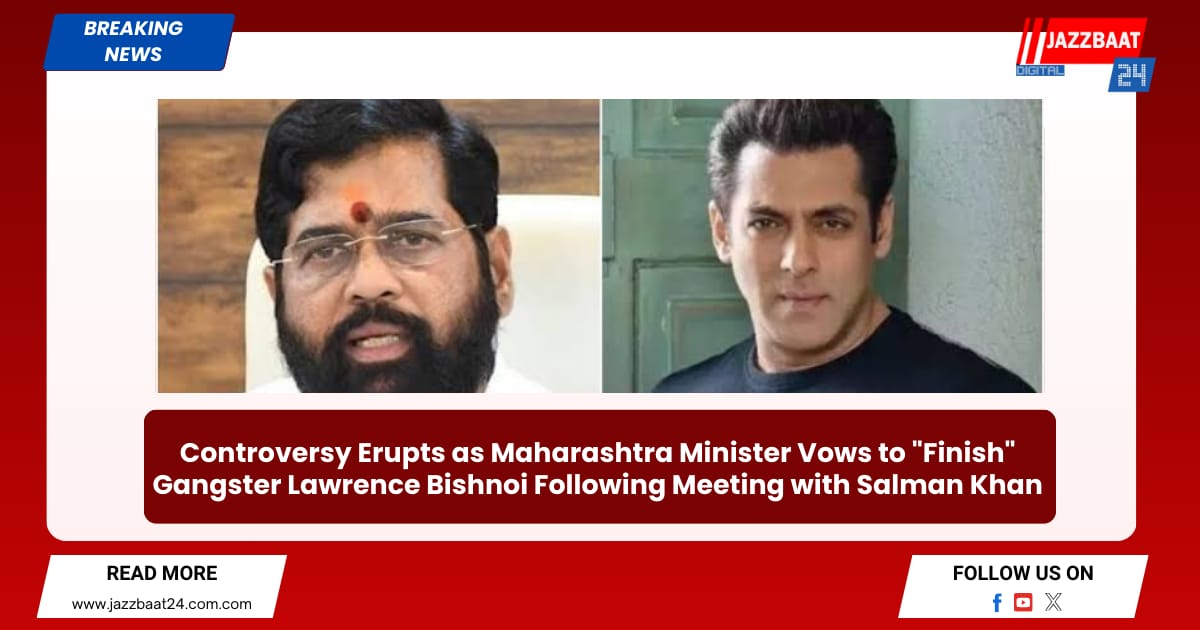Maharashtra Minister Eknath Shinde has ignited a firestorm of controversy after publicly declaring his intention to "finish" notorious gangster Lawrence Bishnoi, following a meeting with Bollywood actor Salman Khan. Shinde's bold assertion has raised eyebrows and prompted accusations of vigilantism, drawing sharp criticism from legal experts and opposition leaders.
The statement came in the wake of a reported meeting between Shinde and Khan, during which the minister allegedly discussed measures to tackle organized crime and curb the influence of underworld figures in the state. Addressing reporters after the meeting, Shinde vowed to take decisive action against Bishnoi, a high-profile criminal with alleged links to extortion and other illicit activities.
Shinde's inflammatory remarks have sparked concerns about the rule of law and due process, with critics cautioning against the use of extrajudicial methods to combat crime. Legal experts point out that such statements undermine the principles of justice and risk setting a dangerous precedent, where individuals are targeted based on political whims rather than evidence and legal proceedings.
Opposition parties have seized upon Shinde's statement to accuse the ruling party of condoning vigilantism and bypassing established legal channels. They argue that the government's failure to uphold the rule of law undermines public trust in the justice system and erodes the foundations of democracy.
The controversy surrounding Shinde's remarks has also reignited debates on the nexus between politics and Bollywood, with critics questioning the propriety of political leaders associating with celebrities to address law enforcement issues. Some argue that such alliances risk politicizing crime-fighting efforts and diverting attention from systemic reforms needed to address the root causes of criminality.
Meanwhile, Lawrence Bishnoi, the subject of Shinde's ire, remains at large, reportedly continuing to evade law enforcement agencies despite multiple charges against him. His alleged involvement in organized crime has made him a target for authorities, but critics warn against resorting to extrajudicial methods to deal with him.
As the controversy unfolds, questions linger about the government's commitment to upholding the rule of law and ensuring justice for all. With public scrutiny mounting, Shinde and other officials are under pressure to clarify their stance on tackling organized crime and reaffirm their commitment to democratic principles. The fallout from Shinde's statement serves as a sobering reminder of the delicate balance between security concerns and fundamental rights in a democratic society.

